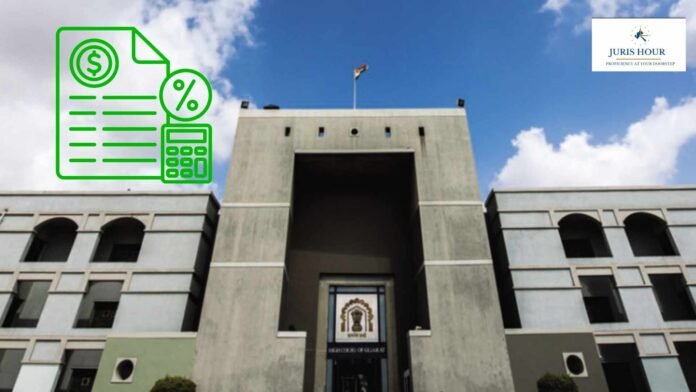The Gujarat High Court has dismissed a tax appeal filed by Jashwantlal Kantilal (Ankleshwar) Pvt. Ltd., now operating as Spherehot WA, upholding the levy of interest on delayed payment of excise duty without adjustment of available CENVAT credit.
The Division Bench comprising Justice Bhargav D. Karia and Justice Pranav Trivedi observed that the expression “actual payment” in Rule 173G(1)(d) of the Central Excise Rules, 1944 must be interpreted strictly as the date of payment and not the availability of credit balance.
The appellant, a manufacturer of electric water heaters, had defaulted in timely payment of excise duty for four months—May, August, September, and October 2001—during FY 2001–02. While the duty was eventually paid along with interest, the dispute arose over the method of computing interest.
The company contended that interest should be computed on the reducing balance method, after adjusting the available CENVAT credit against the outstanding duty. On this basis, the firm paid ₹1,21,292 as interest. However, the Department recalculated the amount at ₹3,18,050, leading to a differential demand of ₹1,96,758 and the issuance of a show cause notice in March 2003.
The adjudicating authority, by order dated October 28, 2004, confirmed the higher interest and imposed a ₹10 lakh penalty under Rule 173Q(1) of the Central Excise Rules. The Commissioner (Appeals) upheld the interest demand but reduced the penalty to ₹2 lakh. On further appeal, the CESTAT maintained the interest computation while reducing the penalty to ₹50,000.
Aggrieved, the assessee approached the High Court.
Counsel Mr. Kunal Nanavati, appearing for the appellant, argued that the available CENVAT credit constituted “actual payment” of duty and should therefore be deducted from the outstanding balance for interest computation. He maintained that interest under Rule 173G(1)(d) is compensatory, not punitive, and must be computed only on the net amount after credit adjustment.
He further relied on Rule 173G(1)(e), which permits the utilization of CENVAT credit for payment of duty, to support the argument that the credit balance should be treated as payment on the due date.
Representing the Department, Mr. Heet B. Jhaveri, appearing for Mr. Shasvat Shukla, contended that the term “actual payment” under Rule 173G(1)(d) refers strictly to the date on which payment is made, not when credit is available. He emphasized that fiscal statutes must be construed literally, citing the Supreme Court ruling in Ranbaxy Laboratories Ltd. v. Union of India [(2011) 10 SCC 292].
The Bench agreed with the Department’s interpretation, observing that Rule 173G(1)(d) clearly stipulates interest “from the first day after the due date till the actual payment of the outstanding amount.”
It held that CENVAT credit cannot be treated as payment unless actually utilized to discharge duty. The Court noted that if the legislature intended to allow adjustment of CENVAT credit while calculating interest, it would have explicitly provided for it in the rule.
The judges also referred to the Supreme Court’s recent ruling in Kesari Nandan Mobile v. Assistant Commissioner of State Tax (2024), reaffirming that statutory authorities must adhere strictly to the scope of the law and cannot infer powers not conferred by statute.
Holding that the legislative intent was to impose interest on the full outstanding amount until actual payment, the Gujarat High Court concluded that the appellant’s computation method was unsustainable. The appeal was dismissed as devoid of merit, with no order as to costs.
Case Details
Case Title: Jashwantlal Kantilal (Ankleshwar) Pvt. Ltd. Now Spherehot Wa Versus Union Of India & Ors.
Case No.: R/TAX APPEAL NO. 1128 of 2008
Date: 15/10/2025
Counsel For Petitioner: Kunal Nanavati
Counsel For Respondent: Shashvata U Shukla

